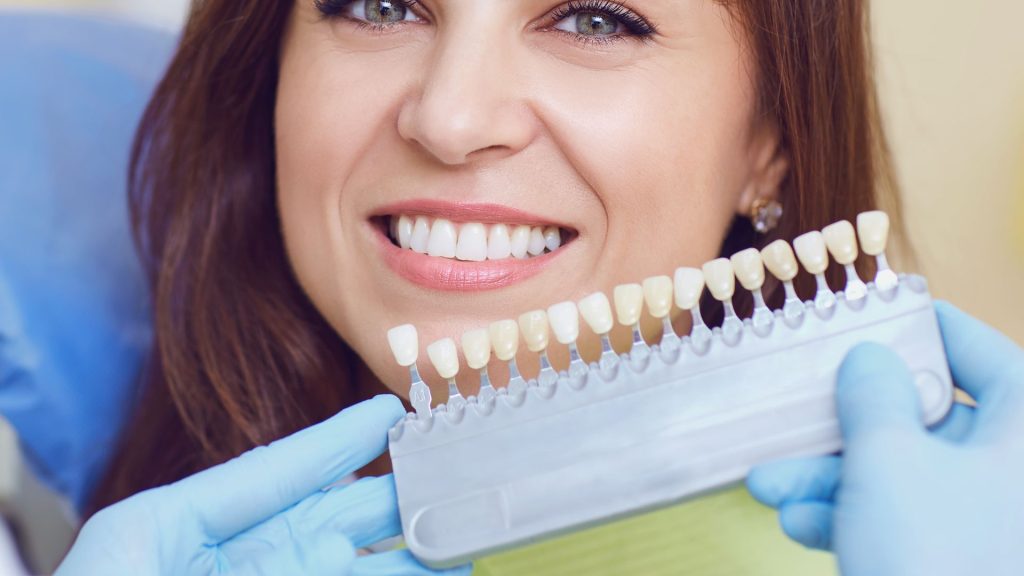Implants All-On-4 Bassendean
Implants All-On-4: With the use of only four dental implants, patients may now repair a complete arch of lost or damaged teeth thanks to the groundbreaking All-On-4 dental implant system. This article will provide detailed information on the benefits and drawbacks of adopting all-on-4 dental implants as well as some tips for using this method.
What is Implants All-On-4?
All-On-4 is an advanced dental technique that uses just four strategically placed implants to support a full arch of new teeth. Two implants are placed vertically at the front of your jaw, and two are placed at an angle at the back, providing maximum stability, even for patients with limited bone volume.
Unlike traditional dentures, All-On-4 implants are fixed in place. This means no slipping, no adhesives, and no frustration. Expect strong, natural-looking teeth that feel and function like your own.
Benefits of using Implants All-On-4
Comparing the All-On-4 dental implant system to conventional dentures or alternative tooth replacement methods, there are a number of advantages. The following are a few of the main advantages of utilizing All-On-4 dental implants:
- Stable and permanent
- Less Need for Implants
- Enhanced Dental Health
- Authentic Appearance
- Improved Usability
- Simple to maintain
Candidates for the Dental Implant


All-On-4 may be right for you if you:
- Have lost most or all of your teeth
- Find dentures uncomfortable or unreliable
- Want to avoid extensive bone grafting
- Are in good general health with healthy gums
Still unsure? Book a consultation with our experienced implant dentist.
Implants All-On-4 Procedure
Step 1: Consultation and Planning
The first phase involves a consultation with a dental professional to determine if the patient is a suitable candidate for the All-On-4 treatment.
During the consultation, the dentist will assess the patient’s oral health, take x-rays and scans of the jawbone, and discuss the patient’s desired outcome. Based on this information, the dentist will create a customized treatment plan.
Step 2: Implant Placement
Once the treatment plan has been finalized, the second phase of the procedure involves the placement of dental implants in the jawbone. This is done under local anesthesia or conscious sedation.
The dentist will place two implants vertically in the front of the jaw and two angled implants in the back to provide maximum support and stability. Temporary replacement teeth are then attached to the implants.
Step 3: Final Restoration
The final phase of the All-On-4 procedure involves the attachment of the permanent replacement teeth. This usually happens a few months after the implants have fused with the jawbone.
The dentist will remove the temporary teeth and attach the permanent replacement teeth, which are designed to look and feel like natural teeth.
The patient will be given instructions on how to care for their new teeth and will need to attend regular checkups to ensure their oral health is maintained.
All-On-4 Dental implants In Bassendean


In conclusion, the All-On-4 tooth replacement system can provide a long-lasting and reliable solution for those with significant dental impairment or those who have lost most or all of their teeth. With only four dental implants, a whole arch of teeth can be restored, offering support and stability compared to traditional dentures.
Remember, taking care of your oral hygiene and visiting your dentist regularly can ensure the success of the implants.
At Bassendean Spring Orchid Dental, our team of experienced dental professionals is ready to help you with your oral health needs. Contact us now to schedule your check-up and learn more about how All-On-4 dental implants can benefit you.
FAQs
Patients should not experience any discomfort during the All-On-4 dental implant process because it is conducted under local anesthetic. Moreover, some soreness and swelling may occur following the treatment, but this may be handled with pain medication recommended by a dental expert.
So, you should consult with your dentist for further specifics regarding the therapies and pain reduction strategies employed.
Indeed, All-On-4 dental implants work like natural teeth and allow patients to eat normally. To let the implants fully heal, patients should avoid hard, crunchy, or sticky meals for the first several weeks after the treatment: natural teeth, dental implant, fixed prosthesis, traditional implants, final prosthesis.
With proper care, All-On-4 implants can last for decades. Good hygiene, avoiding smoking, and regular checkups help protect your investment and keep your smile healthy.





